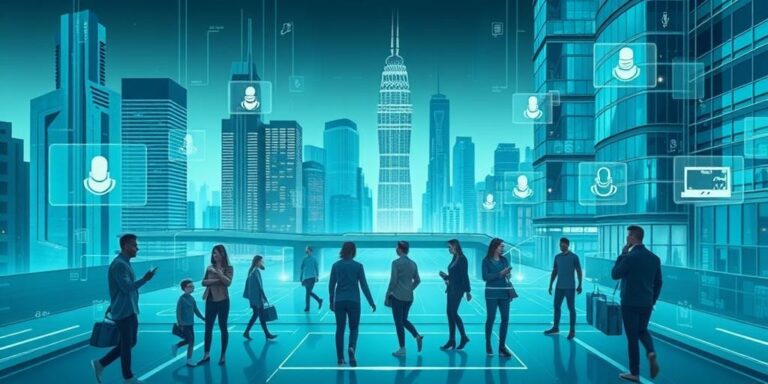Voice Assistants in 2028: Proactive, Contextual, and Indispensable
In the rapidly evolving landscape of technology, voice assistants are poised to become even more integral to our daily lives by 2028. This article explores the anticipated advancements, capabilities, and roles that voice assistants will assume, transforming how we interact with technology and the world around us.
The Evolution of Voice Assistants
Voice assistants have come a long way since their inception. Early versions were limited to simple tasks such as setting alarms and playing music. Today, they can manage smart home devices, provide information, and even engage in basic conversation. By 2028, we can expect voice assistants to be:
- Proactive: Anticipating user needs before being explicitly asked.
- Contextual: Understanding the environment and user history to provide relevant responses.
- Indispensable: Seamlessly integrated into daily routines and essential tasks.
Key Advancements Expected by 2028
1. Enhanced Natural Language Understanding (NLU)
One of the most significant advancements will be in NLU. Voice assistants will become better at understanding nuanced language, including idioms, sarcasm, and complex sentence structures. This will lead to more natural and intuitive conversations.
2. Contextual Awareness
By 2028, voice assistants will have a much deeper understanding of context. They will be able to factor in location, time of day, user history, and even emotional state to provide more relevant and personalized responses. For example, if you’re running late for a meeting, your voice assistant will proactively suggest an alternative route and notify the participants.
3. Seamless Integration with IoT Devices
The Internet of Things (IoT) will be more pervasive than ever, and voice assistants will serve as the central hub for controlling these devices. Imagine walking into your office, and your voice assistant automatically adjusts the lighting, temperature, and music to your preferences.
4. Advanced Personalization
Voice assistants will leverage machine learning to understand user preferences and habits better. This will enable them to provide highly personalized recommendations, automate routine tasks, and even offer emotional support.
5. Improved Security and Privacy
As voice assistants become more deeply integrated into our lives, security and privacy will be paramount. By 2028, expect significant advancements in encryption, authentication, and data protection to safeguard user information.
The Roles Voice Assistants Will Play
Personal Concierge
Voice assistants will act as personal concierges, managing schedules, booking appointments, making travel arrangements, and handling various administrative tasks.
Healthcare Companion
In healthcare, voice assistants can help monitor patients’ health, remind them to take medication, and provide remote consultations with doctors.
Educational Tool
Voice assistants can offer personalized learning experiences, answer questions, and provide feedback to students of all ages.
Accessibility Aid
For individuals with disabilities, voice assistants can provide greater independence by assisting with daily tasks and communication.
Challenges and Considerations
Despite the immense potential, several challenges need to be addressed:
- Data Privacy: Ensuring user data is protected and used responsibly.
- Bias and Fairness: Avoiding biases in algorithms that could lead to discriminatory outcomes.
- Ethical Considerations: Addressing the ethical implications of AI-driven decision-making.
Conclusion
By 2028, voice assistants will be proactive, contextual, and indispensable components of our lives. With advancements in NLU, contextual awareness, and personalization, they will transform how we interact with technology and the world around us. While challenges remain, the potential benefits of these advancements are immense, promising a future where technology is more intuitive, accessible, and beneficial for all.




